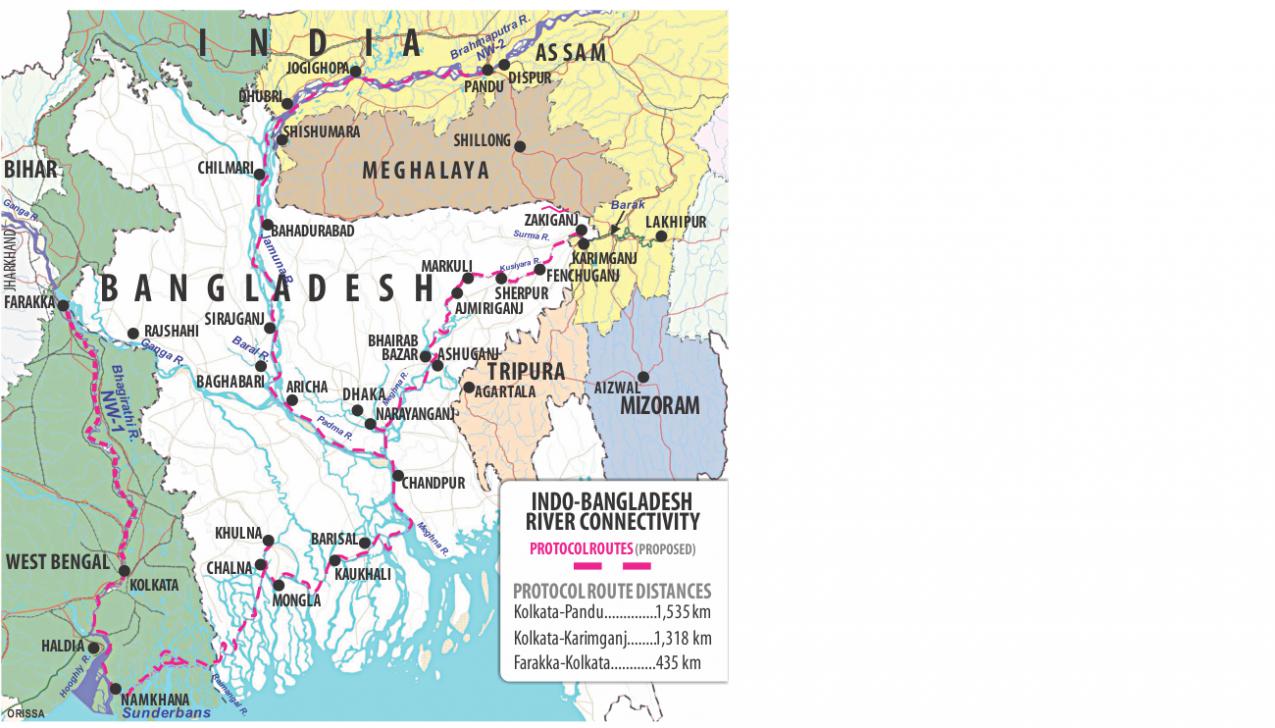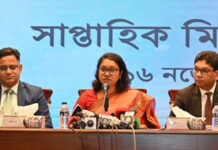Bangladesh may provide river transit to India on a limited scale this year after the two sides fix transit fees and charges.
A joint committee comprising officials of both countries would be formed soon to make recommendations for the fees and charges within two months, said shipping ministry officials.
Once those are settled, the facility might be given to India on a limited scale, they said.
“It will require large-scale dredging of river routes if India is to be provided with full-fledged river transit facility,” said one of the officials on condition of anonymity.
At a meeting in New Delhi in April, shipping ministry officials of the two countries agreed to make mutually beneficial arrangements for the use of waterways, roads and railways for bilateral trade and passage of goods between two places in one country through the territory of the other.
India would pay Bangladesh transit fees, while Nepal and Bhutan would pay fees to both Bangladesh and India, said the officials of Bangladesh shipping ministry.
At present, India pays Bangladesh Tk 10 crore annually for using the latter’s waterways.
Under the new arrangement, fees and charges would be set in accordance with the policy of the World Trade Organisation.
A Standard Operating Procedure (SOP) has been drafted under the Extension of Protocol on Inland Water Transit and Trade (PIWTT) signed during the recent Dhaka visit of Indian Prime Minister Narendra Modi.
The SOP contains details of the transit routes, ports of call and other related issues.
Dhaka, however, will have to sign a separate deal with Delhi for using India’s river routes to move goods to Nepal and Bhutan.
Twelve ports, six each in Bangladesh and India, have been proposed as ports of call where ships would load or unload cargos and undergo repairs.
Those are Mongla, Khulna, Sirajganj, Narayanganj, Pangaon and Ashuganj in Bangladesh, and Kolkata, Haldia, Karimganj, Pandu, Silghat and Farakka or Bandle in India.
Source: The Daily Star










